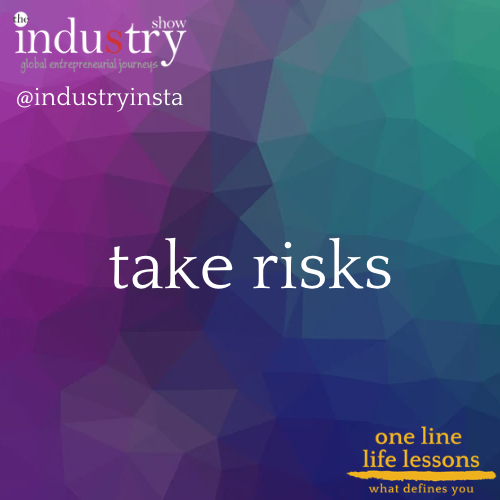Mar 18, 2023
Bibek Debroy
Bibek Debroy is a distinguished economist and scholar with extensive experience in academia, government, and policy. Currently serving as the Chairman of the Economic Advisory Council to the Prime Minister of India, he plays a key role in shaping economic policies and advising the government on various economic issues. Bibek is known for his insightful analysis and research in areas such as economic reforms, public finance, and economic development. He has held several prestigious positions, including as a professor at the Centre for Policy Research and as a member of the NITI Aayog, where he has made significant contributions to India’s economic development. Bibek is also a prolific author, having written numerous books and articles on economics and public policy. His expertise and leadership continue to have a profound impact on India’s economic landscape.
One Line Life Lessons from Bibek




Episode Highlights
- (0:00:00) – Nitin Bajaj welcomes Dr. Bibek Debroy to the show
- (0:00:12) – Bibek is the chairman of the Economic Advisory Council to the PM
- (0:02:52) – As chairman of the Economic Advisory Council, what’s your biggest challenge
- (0:04:43) – You’re on the Economic Advisory Council advising the prime minister on economic issues
- (0:05:41) – As chairman of the ESC, what is your biggest challenge and opportunity
- (0:12:35) – Would love for you to share a few of your life lessons with us
Show Transcript
Transcript - Full Episode
Nitin Bajaj:(0:00:00) – Hey, everyone, welcome to the industry show. I’m your host, Nitin Bajaj. And joining me today is Padma Shri Dr. Bibek Debroy. Bibek, welcome on the show.
Bibek Debroy: (0:00:10) – Thank you.
Nitin Bajaj:(0:00:11) – Pleasure is all ours. So let’s start with the big question. Who is Bibek?
Bibek Debroy: (0:00:16) – Who is Bibek? Well, my career has been that of an economist. I have been in academia for most of my life, although in the past as well, I have worked for the government. Right now I’m the chairman of the Economic Advisory Council to the prime minister, short and sweet.
Nitin Bajaj:(0:00:38) – I love the humility. Bibek, tell us what the EAC, the economic advisory Council does. And I know it will be a challenge to say that in a minute, but we’d love to give a layman like me an understanding of what the mission is. What is the vision and what is the impact of the EAC?
Bibek Debroy: (0:01:00) – The history of the Economic Advisory Council goes back a long, long time. It started off in the 1970s when the famous economist Shukmai Chakravati was an economic advisor to the prime minister. Thereafter, different prime ministers have sometimes had an economic advisory council. The last prime minister, Dr. Manmol Singh, also had an economic advisory council, which used to be headed by Dr. Nagarajan. This particular economic advisory council was established in September 2017 by Prime Minister Nandra Modi. As the expression Economic Advisory Council to the prime minister suggests, it offers advice directly to the prime minister. There are other positions which also offer economic advice, including that of the chief economic advisor who is located in the Department of Economic Affairs, Ministry of Finance, who primarily offers advice to the finance minister. Different ministries have their own economic advisors. This one, it has a structure with three full time members and the chairman. The other two members are Sanjeev Sanyal and Shamika Ravi. These are the full time members. There are several part time members also. And as I said, it’s an economic advisory council to the prime minister. What it renders in terms of advice remains with the prime minister. It does not come out into the public domain. And since it is to the prime minister, it has to be an important enough issue to be escalated to the level of the prime minister. We typically have our meetings once every month.
Nitin Bajaj:(0:02:51) – Great, sir. Only the important stuff tell us about as you look at all of these different issues, sociopolitical, economic, what’s the one big challenge you face as the chairman.
Bibek Debroy: (0:03:05) – Of the Economic Advisory Council to the panelists? Well, let me put it like this that I’m an economist, I’m an academic academics, or I used to be an academic. Academics are very good at writing papers which list out all the problems that exist. This particular prime minister is not a prime minister who’s interested in the problems, he’s interested in people telling him how to solve the problems. The classic academic is very bad at doing that. The classic academic is very bad at pinpointing specific bits of action that needs to be done. And of course, when you are rendering advice to someone like the prime minister, you are rendering advice to someone who’s inherently a politician. So therefore the message has to be couched in those terms. So the greatest challenge is to translate whatever thoughts you have into a specific action points and b express it in slightly non technical terms, not to dumb it down, but to express it using slightly different words from what you would do if you were to be writing a paper.
Nitin Bajaj:(0:04:35) – And I believe you’ve done well, you’ve been at it for six years.
Bibek Debroy: (0:04:39) – Well, I presume so, otherwise I would have been kicked out by now.
Nitin Bajaj:(0:04:43) – On the flip side of challenges come opportunities. What’s the one that you’re most excited.
Bibek Debroy: (0:04:48) – About as the Economic Advisory Council again? Well, obviously it is very exciting because you are rendering advice to the prime minister. And I repeat what I just said, that our advice is not for the world in general. The world in general does not know. So one of the biggest challenges actually has been that people say, what on earth do you guys do? We don’t find you visible, you don’t tell the world at large what you’ve been up to. One of the things that’s very exciting about this particular job is suddenly you see the government has taken action, a, b or c. And even if the world does not know that you have had a role to play in that, that is exhilarating, that you are actually influencing policy.
Nitin Bajaj:(0:05:40) – So true. Now, when I asked you both the challenge and the opportunity question, you were very specific in asking is this, as the chairman of the ESC, I’m curious to hear outside of your role in the other eleven or 12 hours of your day, what is the biggest challenge and what’s the biggest?
Bibek Debroy: (0:05:59) – Oh, there are several different things I do actually, other than the Economic Advisory Council to the prime minister. Strange though it may seem, I write a Limerick every day, so five days a week actually, for a newspaper called mint. So my biggest challenge, the first thing in the morning is what am I going to write the Limerick on then? I write columns for a whole lot of newspapers. And if you’re writing columns regularly, the biggest challenge is to think of what you are going to write on. So that’s the challenge. Once you’ve figured out what you’re going to write on, then it becomes easy. Then there is the regular work at the Economic Advisory Council, which also means that the chairman managing the views of different individuals, because, after all, we’ve got what? We’ve got seven different individuals who all have their different points of view or may have their different points of view. So one needs to reconcile them into a consensus position of the economic Advisory Council. So managing that is not a bit of an issue, but it needs some managing. And then I also do some translations from the Sanskrit to the English, so that engages me towards the evening. So different challenges at different points during the day.
Nitin Bajaj:(0:07:21) – And by some translation you mean you’ve only transcribed the Ramayan and the Mahabharata and a few other things and you’ve published about 70 od books.
Bibek Debroy: (0:07:32) – The number of books, I can’t give a satisfactory answer right now. The reason being that at one point they were all listed number wise. Now they are listed sort of reading wise, theme wise, so I don’t have a ready count, but authored, edited together, it would be about 100 and 3140.
Nitin Bajaj:(0:07:52) – You must have more than 24 hours, in your case.
Bibek Debroy: (0:07:55) – No, not really, because I generally do not bring professional work home. So the professional stuff is out of the way by about seven in the evening. Seven to 830 is when I do the translation. So roughly, by 830, the working day, so to speak, is over.
Nitin Bajaj:(0:08:16) – You’re a very disciplined person.
Bibek Debroy: (0:08:18) – It’s really a question of time management, because I think what people quite often use the buzword of multitasking. I do not think anything like multitasking ever exists. Multitasking. In the course of a day, I may be seen to be doing six different things. That’s not multitasking, because at any one point in time, I’m doing only one. So serially it is different tasks, but at any one point in time it’s just one thing, the most difficult thing, and people have asked me such questions before. The most difficult thing to do is when I’m doing x to blank out everything else. That’s easier said than done. And people have asked me that. How have you cultivated this habit? This is not something that can be easily described. It’s just happened over a period of time. But that’s the most difficult thing to do.
Nitin Bajaj:(0:09:15) – True. I want to go back in time and take a look at the rear view mirror and talk about one instance that blew your expectations and became a success beyond your imagination, and another one that did not. And it didn’t even meet your expectations became a failure or a lesson in.
Bibek Debroy: (0:09:37) – My life, you mean. You see, throughout, I am someone who gets very impatient doing the same kind of thing years on end. So my career has been a bit of a roller coaster ride. Meaning that after I have been safe and secure in a certain job for a certain period of time, I get bored. I just chuck it and take a leap into the unknown. So throughout my career, I have taken risks. Strange kinds of things, all kinds of things. So I would not recommend my life path as a role model fathers to follow, because it has always been in terms of taking risks. When you take a risk, there is your short term and there is a long term. In the short term, there are consequences. And you think, oh, my God, why did I do this? I was perfectly safe and happy doing something else. But in the long run, all the risks have actually paid off.
Nitin Bajaj:(0:10:49) – So you’re a role model.
Bibek Debroy: (0:10:51) – No, I’m not. Because, as I said, I think few people would be crazy enough to do things like these.
Nitin Bajaj:(0:10:57) – Sure. I think the mindset that I come from, that I’ve learned, is I’d rather take the risk and come out wrong than live in the regret that I should have.
Bibek Debroy: (0:11:10) – No, I don’t have any regrets. I have no regrets. Well, let me give an example that otherwise, probably it’s not very obvious what I’m trying to say. I headed a law reforms project from 93 to 98. Before that, I was happily established as a professor of economics of the Indian Institute of Foreign Trade, who would retire at a certain date, get pension provident fund graduate, whatever, whatever. And suddenly I was asked whether I would be willing to head a law reforms project. Nothing to do with economics. And I decided to resign my comfortable and cushy job and take up the law reforms project. Now, most people thought I was mad and eccentric, which I probably was, but I liked doing that law reforms project. So time after time. This is actually what has happened ever since the start of my career in Kolkata.
Nitin Bajaj:(0:12:11) – You’re a refined risk taken. I love that.
Bibek Debroy: (0:12:14) – Yes, but it’s not that.
Nitin Bajaj:(0:12:17) – It’s a calculated risk.
Bibek Debroy: (0:12:19) – No, not even a calculated risk. Calculated seems to suggest that you weighed all the pros and the cons and calculated everything. I’ve never done that. Oh, fine. This sounds interesting. Let’s do that. Okay. I’m bored with whatever else I’m doing. Let me just do that.
Nitin Bajaj:(0:12:33) – I love that. I’d love to take this moment and transition into my favorite part of the show. We call that the one line life lessons. Would love for you to share a few of your life lessons with us.
Bibek Debroy: (0:12:47) – Well, firstly, in continuation of what I said earlier, that if you are going to be crazy in terms of the way I’ve described it, you need to marry wisely. So one life lesson is be careful about choosing your spouse, especially if you’re going to be crazy in this fashion. The other life lesson is, as I said, it’s worked out for me. Taking risks has worked out for me. That does not necessarily mean it’s going to work out for everyone. And the third one, which is again linked, is the cliched one that every time a door or a window seems to close, some other door or some window seems to open. And I have now come to the conviction that no matter how well you want to chart out your life, plan out your life, it never really works that way. Over and above that, you can call it destiny. You can give it something else. There is something that destiny has in mind for you and that’s completely immune to whatever your own planning process might tend to suggest. And therefore, life has its own way of taking you along and therefore, just enjoy the ride.
Nitin Bajaj:(0:14:00) – Love that. Dr. Debroy, thank you so much for being with us. Really appreciate you taking the time, sharing your journey, your story and your life lessons with us. We really appreciate it. Thank you.



